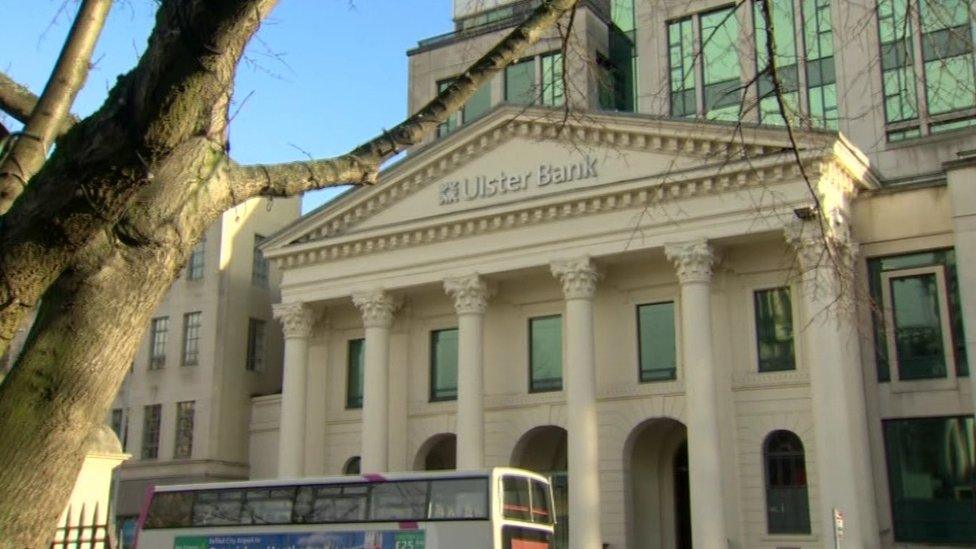Ulster Bank confirms Republic of Ireland closure
- Published
- comments
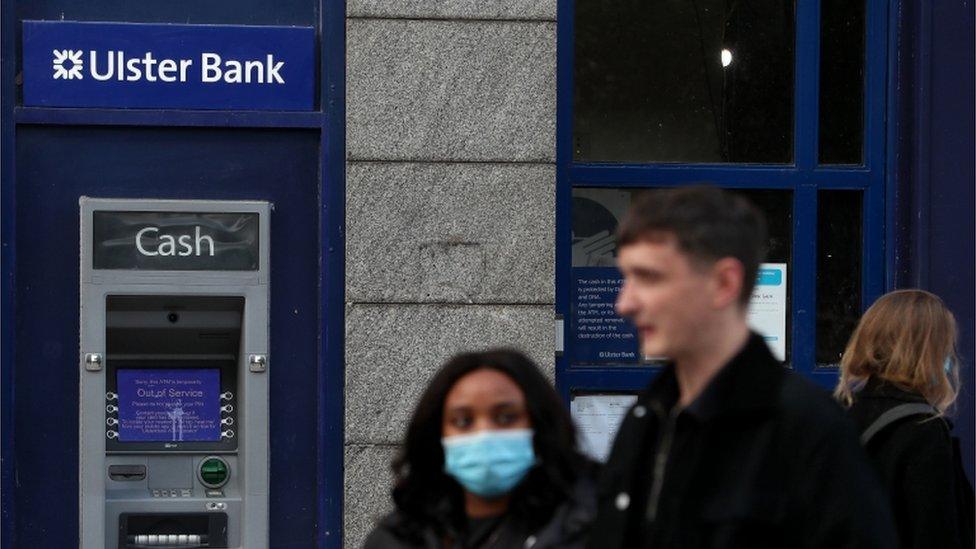
Ulster Bank opened its first branch in Dublin in 1862
Ulster Bank is to close down its Republic of Ireland business over the next few years.
The bank's parent company, Nat West, made the announcement on Friday.
Ulster Bank is by some measures the third largest bank in the Republic of Ireland but has struggled to be profitable.
Ulster Bank's business in Northern Ireland will continue to trade but there are concerns the move could impact jobs.
Claire Hanna, the SDLP MP for South Belfast said: "The removal of Ulster Bank from the Republic of Ireland serves a threat to around 600 jobs in the northern operation, they are backroom staff who administer daily for the southern operation.
"Where state owned banks are looking to capitalise on this opportunity to buy loan books, I will be making representation to both the London and Dublin governments to ensure they use their strength to protect the workers at the heart of today's devastating news."
Ulster Bank has told its NI staff there will be no new or compulsory redundancies this year as a result of the announcement.
NatWest Group CEO Alison Rose said: "Following an extensive review and despite the progress that has been made, it has become clear Ulster Bank will not be able to generate sustainable long terms returns for our shareholders.
"As a result, we are to begin a phased withdrawal from the Republic of Ireland over the coming years which will be undertaken with careful consideration of the impact on customers and our colleagues."
'Upward pressure'
Ulster Bank was founded in Belfast in 1836 and opened its first branch in Dublin in 1862.
It currently employs more than 2,500 people in the Republic of Ireland.
It has a loan book of more than 20bn euro (£17.2bn), mostly domestic mortgages.
Those loans will be sold on to other financial institutions or managed for Nat West by a loan service company.
AIB has already agreed to buy 4bn (£3.4bn) euro of commercial loans.
The decision to wind down the bank was widely expected and has raised concerns about competition.
The Irish market is dominated by two banks, Bank of Ireland and AIB.
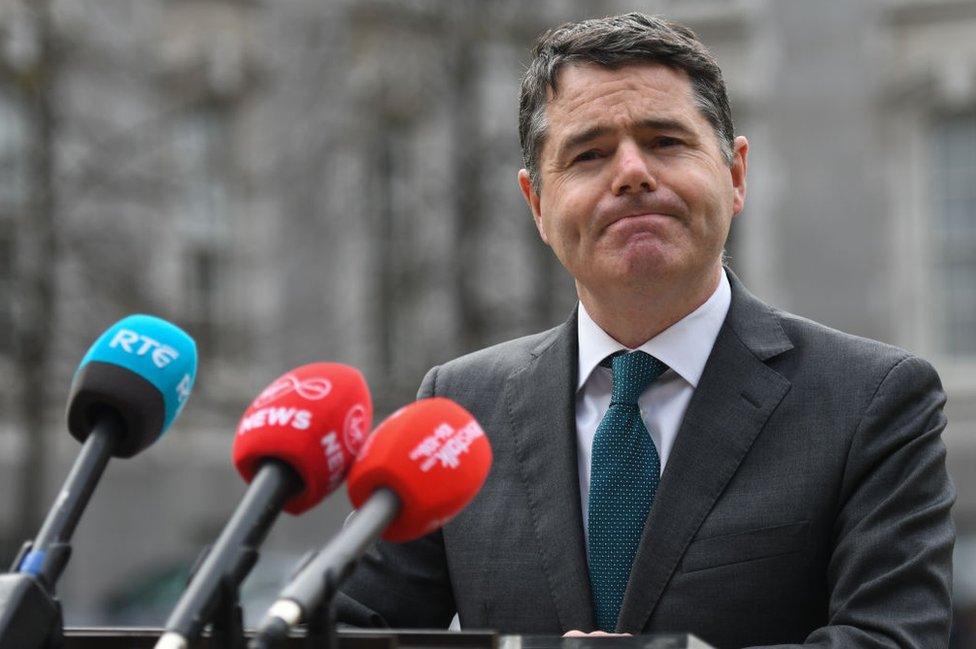
Irish Finance Minister Paschal Donohoe said it was a difficult day for the bank's staff
Ulster Bank's chief executive, Jane Howard, described the NatWest decision as "hugely disappointing", and emphasised it will be a "phased withdrawal" over a number of years.
She said the bank will "continue to offer a full banking service in our branches, online and through normal channels for existing and new customers for the foreseeable future".
After the announcement, Permanent TSB said it was in "early discussions with NatWest in relation to acquiring certain elements of the Ulster Bank businesses in the Republic of Ireland".
Its chief executive, Eamonn Crowley, said it wanted to provide "continuity of service for customers", as well as strengthening Permanent TSB's "ability to provide choice and competition in the market generally".
Ireland's Finance Minister Paschal Donohoe described the Ulster Bank announcement as a "very significant event" and a difficult day for employees.
However, he said he took some reassurance that there was immediate interest in the bank's loan book.
"I welcome the reference made this morning to the two other Irish banks, PTSB and AIB, who are engaging with NatWest regarding the future of Ulster Bank's SME (small and medium enterprise), mortgage, retail and commercial loan books, as well as the current and deposit accounts held by the bank," he said.
"While this is positive news and indicates the potential further development of already well established Irish banks, there is still much work to be done over the coming months."
On Thursday, Sinn Féin Finance spokesman Pearse Doherty warned that an Ulster Bank exit could place "upward pressure" on interest rates and he urged the Irish government do all it could to minimise the damage to customers.
Related topics
- Published14 February 2020
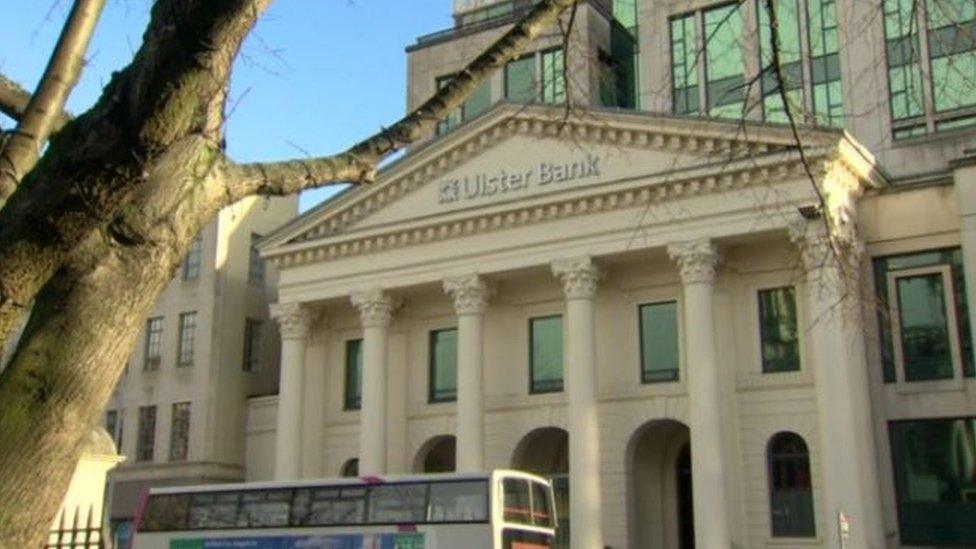
- Published2 August 2013
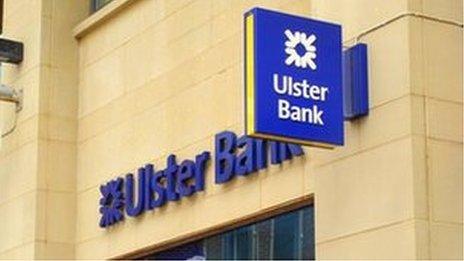
- Published15 February 2019
